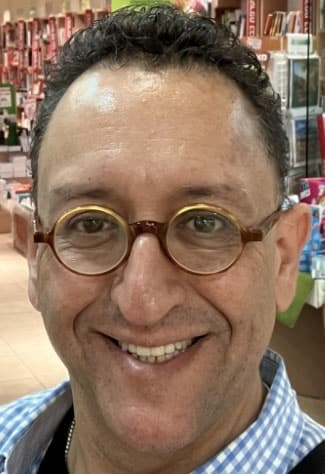Everybody wanted to be in Moscow this past weekend. Leaders from all over the world flew in to partake in history: President George W. Bush, French President Jacques Chirac and German Chancellor Gerhard Schroeder all made it, as did President Moshe Katzav of Israel.
But as the world leaders all converged on the Russian capital, only Katzvav and his wife, Gila, secured an entry ticket to Moscow’s hottest event that weekend — the Final Four of the European Cup Basketball Championship. It featured three European teams — Russia, Spain and Greece — and one non-European team from a place in the Middle East called “Israel.”
As the world’s leaders gathered in Moscow to join Russian President Vladimir Putin in commemorating the 60th anniversary of the defeat of Nazi Germany, 13,300 basketball fans gathered in Moscow’s Olympisky Arena to watch Maccabi Tel Aviv try to defend its Euroleague basketball crown.
Think about it: Moscow hosts a large ceremony celebrating the defeat of the Nazis, and, just a few minutes away from all of the pomp and circumstance, on the same weekend, Moscow also plays host to a basketball tournament that will potentially crown a team from a Jewish state in the Middle East as champions of Europe.
Some will call it irony, others will call it sweet justice, but no matter how you see it, the scene in Moscow this past weekend put a unique spin on history, one that is worth exploring as we celebrate 57 years of Israel’s independence this week.
Imagine if you had told a Holocaust survivor walking out of the gates of Auschwitz that in 60 years, a Jewish state in the Land of Israel would send a basketball team to Moscow to play for the European basketball championship. The responses would have included anything from sheer disbelief at the thought of an independent Jewish state to wondering why a team from the Middle East would play in the European league.
That Israel is competing against European teams rather than in a Middle Eastern league serves as a grim reminder of the unfriendly neighborhood where Israel is situated. Israel has had peace with Egypt since 1979, Jordan since 1994, and is currently in peace talks with the Palestinians. Yet with all the supposed atmosphere of “peace,” no realist would venture to suggest hosting a basketball tournament featuring teams from Egypt, Jordan, the Gaza Strip and Israel, which begs the larger question of how genuine all of this “peace” really is.
It’s not like the European continent is a more logical place for Israel to play basketball. Not too long ago, anti-Semitism was virtually a way of life in Europe, and just when we thought it was all over, European anti-Semitism is once again fashionable. So what is Israel’s team doing playing in Europe? Well, they’re not playing for sympathy.
In this onetime bastion of Jew-hatred, the team from the Jewish state has won five European basketball championships (1977, 1981, 2001, 2004 and 2005). France, with all of its open disdain for Israel and its laissez-faire approach to current anti-Semitism, has one title in the 47 years since the founding of the Euroleague; Germany still waits for its first.
That the current crowning of Israel took place in Moscow is also something to reflect upon. Imagine visiting Natan Sharansky in a Soviet prison during the 1970s and telling him that one day, Moscow’s Olympisky Arena would contain 7,000 Jews from Israel openly waving Israeli flags, and chanting “Hatikvah” together as their team lifted the European Cup.
That such a scenario is not fiction, but really took place just a few days ago, is an event of monumental historical importance that travels far beyond the boundaries of a basketball court.
Much to the disdain of several world leaders gathered in Moscow this past weekend, Israel is a fact on the ground, and it is here to stay. In basketball, and in many other fields, this young country continues to behave like a true champion.
This was best expressed by Tal Brody, the legendary captain of Maccabi Tel Aviv, in 1977, after Maccabi’s defeat of the Soviet Red Army Team on the way to its first European championship.
“Now we are on the map,” said Brody in a post-game interview. “And we are staying on the map — not only in sports, but in everything.”
Daniel Bouskila is the rabbi of Sephardic Temple Tifereth Israel in West Los Angeles.























 More news and opinions than at a Shabbat dinner, right in your inbox.
More news and opinions than at a Shabbat dinner, right in your inbox.